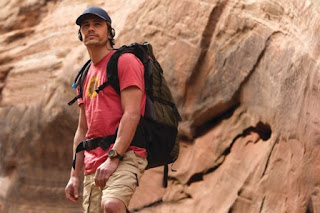Initially when I found out about the "Deathly Hallows" being divided into two separate movies I must say that this fact irritated me. It's no secret that the film company made such a decision with the inevitable financial aspect in mind - I believe it would be safe to say it's common knowledge that every new Harry Potter movie is the equivalent to the creators having a billion dollars more in their pockets. After watching the first part of the "Deathly Hallows" however, I conceded that this clearly economic move did the movie a favour.
In this episode of the "Deathly Hallows" the magical world of the famous film saga we have come to know is immersed in darkness and seized by Lord Voldemort (Ralph Feinnes) and his minions. At the same time, we accompany those that are in rebellion against this new order - the rebels being Harry (Daniel Radcliffe), Hermione (Emma Watson) and Ron (Rupert Grint). They decide to fight. And that's why they head out to locate and annihilate the Horcruxes in which fragments of Voldemort's soul are hidden. It turns out that in the final showdown with "You Know Who" the Deathly Hallows could prove to be of major importance.

"The Deathly Hallows part one" proves successful in captivating the audience's full attention throughout the duration of the movie. Due to the plot being less branched, director David Yates was able to immerse himself in the main storyline to a much greater degree. When watching this movie it is obvious that the makers didn't just "do the job". "The Deathly Hallows" is graced with a touch of fantasy and pure creativity of the creators. This can be noticed thanks to some alternative, yet creative visual effects - for instance, the animated story about the deathly hallows, filmed in a black-yellow colour and in the scene where Ron is being tempted, reminding us of Peter Jackson's "Lord of the Rings". The world seized by Voldemort's powers was stylised in a way that it reflected what Germany looked like when ruled by Hitler, and this turned out to be a brilliant move - the grim buildings, the everlasting feeling of danger or the muggle persecution inspired by the Holocaust intensify that aura.
Apart from that, the audience are supplied with sheer entertainment; with an addicting and absolutely captivating storyline, and action scenes soaked with imaginativeness. Let's not forget about the stunning pictures held in an epic, grim tone and the exceptional soundtrack courtesy of Alexandre Desplat.
"Harry Potter and the Deathly Hallows part 1" isn't just the best movie of the whole saga, but it's also the best fantasy since Peter Jackson's cult classic trilogy. This movie is great to watch, there's not a single moment that tires the viewer. With each addition to the series, David Yates raises the bar of the Potter saga. Here's hoping the second part of the "Deathly Hallows" doesn't turn out to be an exception.




















